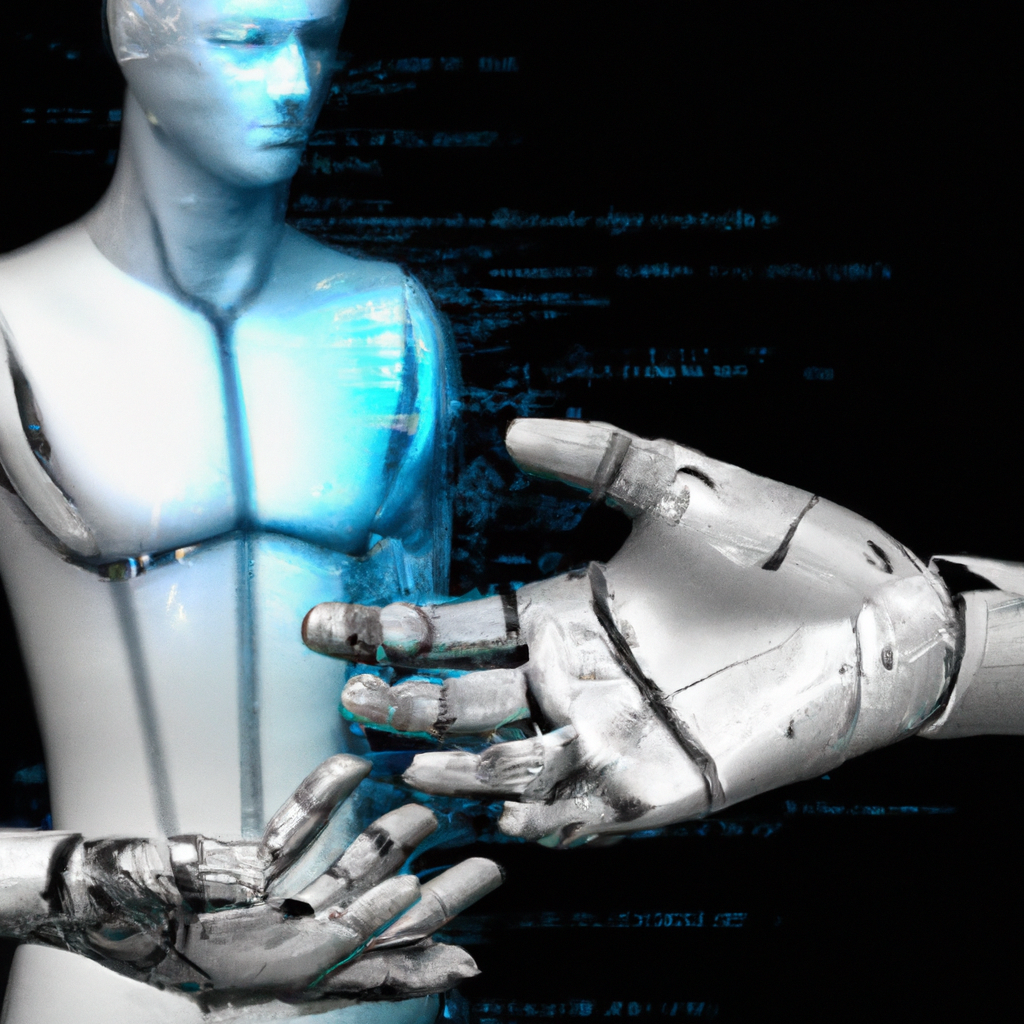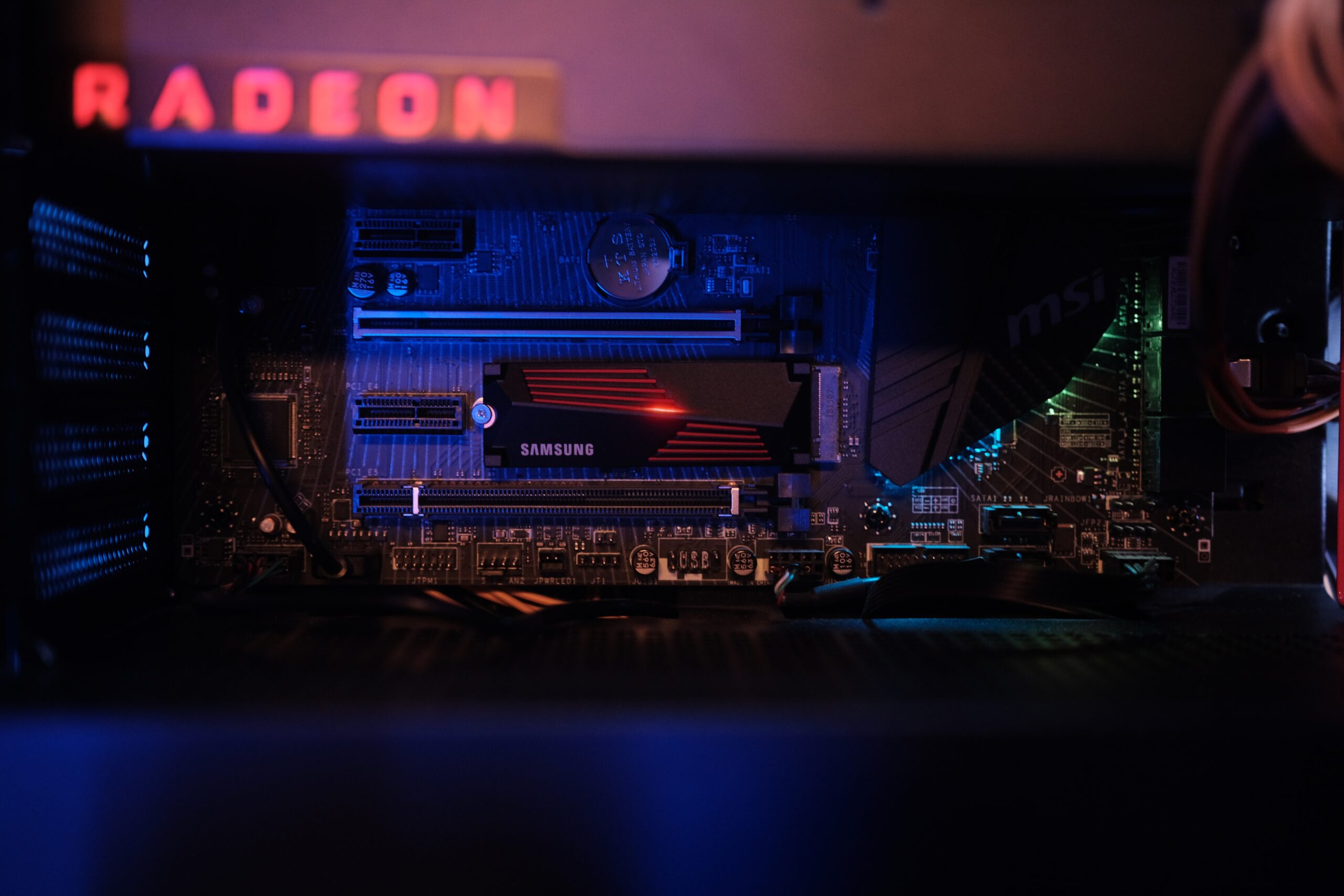In a future where superintelligent artificial intelligence (AI) becomes a reality, ethical challenges emerge as we navigate the unknown. As AI grows more advanced and intelligent than human beings, the implications and consequences of its actions become increasingly complex and uncertain. With the potential to revolutionize industries and surpass human capabilities, it becomes crucial to address the ethical concerns associated with superintelligent AI development and implementation. This article explores the potential ethical dilemmas and offers insights into how we can navigate this uncharted territory responsibly.
1. The Emergence of Superintelligent AI
Superintelligent AI refers to artificial intelligence systems that have surpassed human intelligence in nearly all aspects. These systems possess advanced cognitive abilities, including problem-solving, decision-making, and learning. The concept of superintelligent AI has gained significant attention in recent years as the field of artificial intelligence continues to advance rapidly.
1.1 Definition of Superintelligent AI
Superintelligent AI is characterized by its ability to outperform human intelligence across a wide range of tasks. It has the capacity to understand complex problems, process vast amounts of data, and generate innovative solutions. Unlike traditional AI systems, which are designed for specific tasks, superintelligent AI possesses a general problem-solving ability that transcends domain boundaries.
1.2 The Current State of AI
While the concept of superintelligent AI may seem like science fiction, significant progress has been made in the field of artificial intelligence. Machine learning techniques, such as deep neural networks, have enabled AI systems to achieve remarkable feats, including image recognition, natural language processing, and autonomous decision-making. However, the current state of AI falls short of true superintelligence.
1.3 The Potential of Superintelligent AI
The development of superintelligent AI has the potential to revolutionize numerous industries and transform society as a whole. Superintelligent AI could enhance scientific discovery, aid in solving complex global challenges, and optimize various processes, leading to increased efficiency and productivity. However, the emergence of superintelligent AI also raises significant ethical concerns that must be addressed.
2. Ethical Considerations in AI Development
As AI continues to advance, it becomes increasingly important to address the ethical considerations in its development. Failing to do so may lead to unintended consequences and potential harm. Several key considerations must be taken into account:
2.1 Fairness and Bias
AI systems are only as unbiased as the data they are trained on. It is crucial to ensure that AI algorithms do not perpetuate existing biases or discriminate against certain groups of people. Developers must actively work to eliminate biases and promote fairness in AI systems.
2.2 Privacy and Data Security
The collection and utilization of vast amounts of personal data by AI systems raise concerns about privacy and data security. It is essential to establish robust safeguards to protect individuals’ privacy rights and prevent unauthorized access to sensitive information.
2.3 Accountability and Transparency
AI systems often make decisions that directly impact individuals and society. It is crucial to establish mechanisms for holding AI systems and their developers accountable for their actions. Transparency in the decision-making process of AI systems is also vital to ensure trust and mitigate concerns.

3. The Moral Agency of Superintelligent AI
One of the most significant ethical challenges posed by superintelligent AI is the question of its moral agency. As AI systems become more sophisticated, they may possess the capability to make moral decisions. This raises important considerations:
3.1 Moral Decision-Making Capability
Superintelligent AI may have the ability to make decisions that have ethical implications. It is essential to ensure that these systems are programmed with robust ethical frameworks to guide their decision-making and align with human values.
3.2 Evaluating Consequences and Intentions
When AI systems make decisions, it is crucial to consider not only the immediate consequences but also the long-term effects and intentions behind those decisions. Evaluating the moral implications of AI actions requires a holistic approach that takes into account the broader societal impact.
3.3 Mitigating Unintended Consequences
Superintelligent AI systems have the potential to produce unintended consequences that may be difficult to predict. It is crucial to develop methods for identifying and mitigating these unintended consequences to avoid harmful outcomes.
4. Socioeconomic Implications and Inequality
The advent of superintelligent AI will undoubtedly have significant socioeconomic implications. These implications may exacerbate existing inequalities and disrupt traditional job markets. Key considerations in this regard include:
4.1 Impact on Traditional Jobs and Industries
Superintelligent AI has the potential to automate various tasks and jobs, potentially leading to significant job displacement. It is crucial to address these concerns by reevaluating education systems, cultivating new job opportunities, and ensuring a smooth transition for affected individuals.
4.2 Wealth Distribution and Economic Disparity
The rise of superintelligent AI may further exacerbate existing wealth inequality by concentrating economic power in the hands of those who control AI systems. It is essential to consider mechanisms for equitable wealth distribution and ensure that the benefits of AI are shared by all members of society.
4.3 Dehumanization and Social Cohesion
Superintelligent AI has the potential to dehumanize society by replacing human interactions with machine-based interactions. It is crucial to preserve social cohesion and prioritize human connections, even as AI systems become more prevalent.

5. Ensuring Human Values and Control
Maintaining human control and ensuring that superintelligent AI systems align with human values is of utmost importance. Responsible development and deployment of AI systems require careful consideration of the following factors:
5.1 Aligning AI with Human Values
Superintelligent AI should be programmed to prioritize and align with human values. Ethical guidelines and frameworks can help guide the development of AI systems to ensure that they reflect the values and interests of humans.
5.2 Maintaining Human Control and Autonomy
Humans must retain control over AI systems to prevent potential abuses and ensure accountability. The ability to intervene or override AI decisions should be preserved to maintain human autonomy and prevent outcomes that contravene human values.
5.3 Addressing Unpredictability and Unknown Behaviors
Superintelligent AI may exhibit unpredictable behaviors that could have significant consequences. It is crucial to develop techniques for accurately predicting and understanding AI behaviors to anticipate and prevent potential harms.
6. Legal and Regulatory Challenges
As superintelligent AI becomes more prevalent, legal and regulatory frameworks must adapt to address the unique challenges posed by these advanced systems. Key considerations include:
6.1 Ethical Frameworks and Regulations
Developing and implementing ethical frameworks and regulations specific to superintelligent AI is essential to ensure responsible development and deployment. These frameworks should guide the behavior and decision-making of AI systems.
6.2 Liability and Responsibility
Determining liability and responsibility for the actions of AI systems can be complex. It is crucial to establish clear guidelines and legal frameworks to allocate liability and determine responsibility in cases of AI-related harm or damage.
6.3 International Cooperation and Governance
Given the global nature of AI development and deployment, international cooperation and governance are crucial. Collaborative efforts are necessary to establish harmonious standards and regulations that promote ethical AI development across borders.

7. Ethical Considerations in AI Decision-Making
AI systems make decisions that have real-world impacts. It is crucial to ensure that these decisions are ethical and aligned with human values. Important considerations include:
7.1 Transparency and Explainability
AI systems should be transparent and explainable, enabling individuals to understand how decisions are made. This transparency fosters trust and enables individuals to challenge or question AI decisions when necessary.
7.2 Ensuring Accountability and Justification
AI systems must be held accountable for their decisions, and developers must be able to justify the outcomes produced by these systems. This ensures that AI systems are subject to scrutiny and evaluation to prevent potential harm or unfairness.
7.3 Navigating Moral Dilemmas
AI systems may encounter moral dilemmas where conflicting values or interests arise. It is essential to develop mechanisms for navigating these dilemmas, ensuring that AI systems make decisions that align with the best interests of individuals and society as a whole.
8. Potential Risks and Precautions
Superintelligent AI presents potential risks that must be carefully considered. Taking precautions to mitigate these risks is essential to ensure the responsible development and deployment of AI systems. Key considerations include:
8.1 Catastrophic Risks and AI Arms Race
Superintelligent AI could present catastrophic risks, such as the development of autonomous weapons or the potential for unintended harm. It is crucial to prevent the escalation of an AI arms race and to ensure that AI systems are developed with responsible safeguards in place.
8.2 Preventing Unintended Consequences
Unintended consequences are a significant concern when developing superintelligent AI. Careful planning, risk assessment, and thorough testing are necessary to mitigate these unintended consequences and avoid potential harm.
8.3 Long-term Planning and Contingency
Superintelligent AI’s long-term impact requires comprehensive planning and contingency measures. Strategies for adapting to the potential changes and disruptions caused by advanced AI systems should be developed to ensure the continuity and stability of society.

9. The Role of Ethical Frameworks and Guidelines
Ethical frameworks and guidelines serve as invaluable tools for guiding the responsible development and deployment of superintelligent AI systems. Key considerations in utilizing these frameworks include:
9.1 Utilizing Existing Ethical Guidelines
Existing ethical guidelines, such as the principles of fairness, transparency, and autonomy, should serve as the foundation for developing AI-specific ethics. Building upon these established principles allows for cohesive and consistent ethical decision-making in the realm of superintelligent AI.
9.2 Development of AI-specific Ethics
Superintelligent AI necessitates the development of AI-specific ethics to address its unique challenges and capabilities. The evolving field of AI requires ongoing ethical exploration and refinement to ensure the responsible development and use of these advanced systems.
9.3 Promoting Ethical AI Research and Collaboration
Promoting ethical AI research and collaboration is essential for addressing the ethical challenges posed by superintelligent AI. Encouraging interdisciplinary cooperation and fostering dialogue between researchers, policymakers, and stakeholders can help identify and address ethical concerns effectively.
10. Ethical Responsibility and Public Engagement
As the development and deployment of superintelligent AI systems affect society as a whole, ethical responsibility and public engagement are crucial. Key considerations include:
10.1 Broad Public Input and Inclusion
Public input and engagement should be sought to ensure that the benefits and risks of superintelligent AI are distributed equitably and that the interests of all members of society are considered. Inclusionary practices enable diverse perspectives to shape AI development and address potential biases or blind spots.
10.2 Engaging and Educating Stakeholders
Engaging and educating stakeholders about superintelligent AI’s ethical considerations is vital for fostering understanding and promoting responsible development and deployment. Through active dialogue, stakeholders can contribute to shaping the ethical landscape of AI, ensuring that it aligns with societal values.
10.3 Promoting Responsible AI Development
Promoting responsible AI development involves fostering a culture of ethical awareness and accountability within the AI community. This can be achieved through education, training, and promoting a code of ethics that encourages responsible behavior in AI research and development.
In navigating the unknowns of superintelligent AI, addressing the ethical challenges it presents is of paramount importance. By proactively considering fairness, accountability, the preservation of human values, and engagement with stakeholders, we can effectively navigate the path towards responsible and ethical development and deployment of superintelligent AI.













